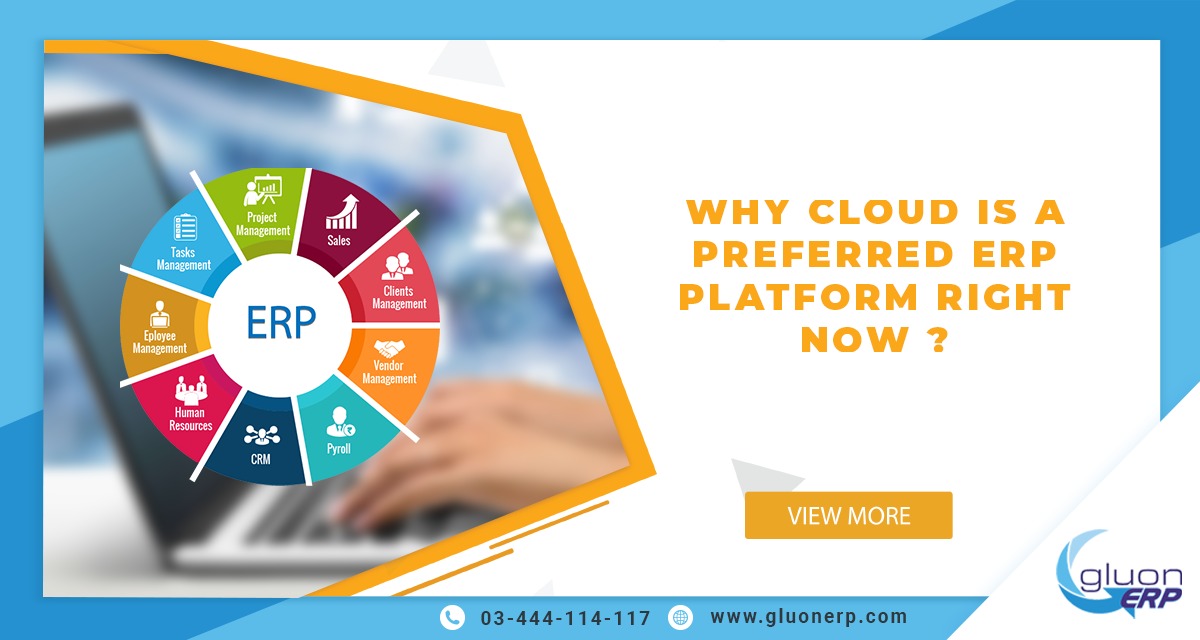
When companies plan on purchasing a Cloud Solution, they may begin by considering a huge investment in terms of setting up a data centre or server room and hiring relevant IT staff. Additionally, they would want to see where the can setup the servers and also consider the heating/air conditioning, lighting, safety measures and networking/internet bandwidth requirements. In today’s time and age, businesses want to for the cloud solutions available in many flavours and colours for many reasons that simply cannot be overlooked by wise C-level Professionals. Some of the reasons are discussed in the text that follows. (Schmidt, n.d.)
Faster Deployments
Cloud hardware is already up and running. Deployment of an ERP simply means copying of the relevant software files and performing the installation and configuration. The moment you realize that you are running out of storage space or feeling short of RAM or CPUs, you simply purchase additional resources and voila… you find the additional resources in your ERP instantaneously.
Immediate Enterprise-wide Availability of the Latest Versions of Applications
A regular bane for maintaining ERPs is to upgrade it to latest versions. Cloud platform services make this extremely convenient and since the cloud can be accessed from anywhere, the updates are available enterprise-wide immediately.
Less Need for On-site Support
With the ERP on the cloud, there is no real need for on-site support, because everything is on the cloud and the cloud vendor is already working 24/7 to ensure high availability.
Simpler Pricing
The pricing and thus the costing for ERP becomes very simple with cloud platforms. In fact, the ERP costing becomes extremely predictable because of the simple pricing model and this is cheaper in comparison to less predictable future costing.
Greater Ease of Use
With cloud company maintaining the hardware as well as the ERP system availability, the software is bound to run very smoothly and hence the ease of use increases drastically. All that is needed is
Mobile-Enablement of Applications
Applications can be very conveniently extended to smartphones by developing for Android and iOS operating systems. Since internet access is all that is needed to connect to the cloud ERP platform, development of the mobile apps becomes as simple as developing any mobile app. Additionally, access to ERP gains mobility. Various stakeholders can view relevant status and provide approvals on the go. In many cases, mobility provides the business-edge that was never available beforehand.
Easier Integration with Outside Data Sources
ERP lives on data. The data in many cases cannot directly input unto the ERP. It may be data residing on other systems or data collected by other entities or people. An ERP living on the cloud can be very conveniently linked or integrated with external data sources rather than having to transfer the data to the ERP all the time. It creates flexibility in the ERP to co-exist with other systems, rather creating dependencies.
Internet of Things (IoT)
The IoT devices exist on the Internet as the name suggests. These devices are already available in the market and are expected to increase in variety and numbers rather exponentially as time progresses. The ERPs of the near future will have to depend on IoT devices for certain data and vice versa, the IoT devices will depending on data of input from the ERP.
Machine Learning Capabilities
The latest paradigm in modern lifestyle and businesses is that of AI. Machine learning techniques enable our systems to utilize historical data to advise us on the fly regarding our work and life. The machine learning requires large amounts of data and computational power and the cloud platforms are ideal for integration with such ML systems or to have ML systems built-in with the ERP.
Conclusion
The overall score given to Cloud Solutions by today’s business leaders is much higher than that given to On-Premise Solutions unless there is a strong premise to make an exception. The cloud solutions are not just popular, they are here to stay. Businesses today aim for sustainability and efficiency and make every attempt to stay lean. The cloud platform offers so much in terms of cost benefits and innovative features that it will stay as the preferred choice for business worldwide whether small or large.




Comments